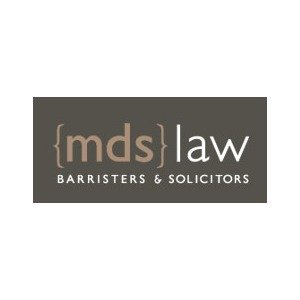Best Copyright Lawyers in Christchurch
Share your needs with us, get contacted by law firms.
Free. Takes 2 min.
List of the best lawyers in Christchurch, New Zealand
About Copyright Law in Christchurch, New Zealand
Copyright law in Christchurch, New Zealand, is governed by the Copyright Act 1994. The law grants creators of original work exclusive rights over their creation, and legal protection from replication, distribution, public display, or modification without their permission. The copyright automatically applies to works like literature, music, films, sound recordings, and artistic works.
Why You May Need a Lawyer
Intellectual property, including copyright, can be complex and requires the expertise of a lawyer. If you are an author, artist, or business owner producing original works, you may require a lawyer to ensure your work is adequately protected. Also, you may need a legal representative if someone has infringed upon your copyright. A lawyer can help initiate legal action and navigate the legal process.
Local Laws Overview
The local laws around copyright in Christchurch are consistent with the overall New Zealand Copyright Act 1994, with additional provisions under various treaty agreements and international legislation. Copyright in New Zealand usually lasts for 50 years after the death of the creator, or 50 years from creation or publication for anonymous works, sound recordings, and films. In some cases, these periods can get extended. Furthermore, circumvention of technological protection measures is usually prohibited.
Frequently Asked Questions
What kind of works are protected under New Zealand copyright law?
In New Zealand, original literary, dramatic, musical, and artistic works including computer programs, films, sound recordings, and broadcasts are protected under copyright law.
Does copyright protection apply to ideas?
No, copyright law doesn't protect ideas. It only protects the expression of ideas in a tangible form.
How long does it take for a copyright to expire?
Typically in New Zealand, the copyright for a work expires 50 years after the death of the creator. In some cases, the period of protection can be extended.
Do I need to register for copyright in New Zealand?
No, there's no formal registry for copyright in New Zealand. As soon as an original work is created, the copyright applies automatically.
Can I use a portion of a copyrighted work?
Depending on the circumstances, you may be able to use a portion of a copyrighted work under the 'fair dealing' provisions. However, these are limited and complex, so it's advisable to seek legal advice.
Additional Resources
Some valuable resources include the Intellectual Property Office of New Zealand (IPONZ), the Copyright Tribunal of New Zealand, and the Ministry of Business, Innovation and Employment (MBIE). Local law libraries and law schools often provide free or low-cost public access to legal resources.
Next Steps
If you need legal assistance, consider consulting with a lawyer specializing in intellectual property or copyright law. You can typically find such individuals through the New Zealand Law Society, or by asking for referrals from other professionals in your field. Always ensure that your lawyer of choice has a clear understanding of copyright law particularly in the local context of Christchurch and is familiar with the procedures and requirements of the relevant governmental bodies.
Lawzana helps you find the best lawyers and law firms in Christchurch through a curated and pre-screened list of qualified legal professionals. Our platform offers rankings and detailed profiles of attorneys and law firms, allowing you to compare based on practice areas, including Copyright, experience, and client feedback.
Each profile includes a description of the firm's areas of practice, client reviews, team members and partners, year of establishment, spoken languages, office locations, contact information, social media presence, and any published articles or resources. Most firms on our platform speak English and are experienced in both local and international legal matters.
Get a quote from top-rated law firms in Christchurch, New Zealand — quickly, securely, and without unnecessary hassle.
Disclaimer:
The information provided on this page is for general informational purposes only and does not constitute legal advice. While we strive to ensure the accuracy and relevance of the content, legal information may change over time, and interpretations of the law can vary. You should always consult with a qualified legal professional for advice specific to your situation.
We disclaim all liability for actions taken or not taken based on the content of this page. If you believe any information is incorrect or outdated, please contact us, and we will review and update it where appropriate.









